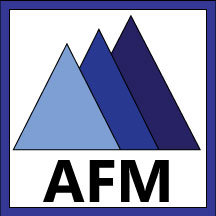Investing Tip:
Questions to Ask About Fees
Over the years many people have been confused about the fees charged to manage their money. One of my own sisters (No Barb, not you!) explained to me that her mutual fund had no fees at all. One of my clients explained to me that he had no fees for his variable annuity (which actually carries at least two levels of fees). I realized that the right questions have to be asked. It's like a cop asking someone if they've been drinking and driving. The answer may be no, but they might be under the influence of several other substances. So here are the questions to ask about fees on your investments, so you can get a true picture.
Annual fees:
-
What are the management fees?
*All* mutual funds, limited partnerships, money management accounts, etc., etc. Have management fees. If they didn't, how would the managers make a living?
-
What are the expenses?
This is where the term 'fees' gets dodged sometimes. It's not a fee, it's an expense!
-
How much are commissions per year?
Often an actively traded mutual fund will spend as much in brokerage commissions as in their other expenses. And this is not included in expenses you'll see listed in the prospectus.
-
For a variable annuity, what is the M&E?
M&E means 'mortality and expense'. It's the insurance charge over and above items 1 & 2. This can be a real gotcha on variable annuities, often running 1.5% per year.
-
Are there other expenses?
Sometimes there are expenses to pay another manager. This is common in foreign stocks for example.
One time fees:
-
What are the surrender charges if I exit the investment early?
Sometimes an investment might have you pay a modest surrender charge for leaving before six months, to keep people from moving in and out. But often for annuities and mutual funds, it's a way to make sure you pay high fees on 1,2 and 3 for many years. I've seen surrender charges as high as 10% on a variable annuity if the funds were left in for less than 1 year.
-
What are the sales commissions?
For things like a limited partnership it's important to understand how much the sales person is getting. It doesn't look like a charge, because you're not paying them anything extra. But often you invest $50,000, and only $45,000 goes to the investment, the rest goes to the salesperson.
-
How much of a brokerage commission is just for the trade?
If you work with a full price broker, you might be paying $250 to make a $5,000 trade. But only about $25 of that is actually the trade cost. The other $225 is primarily a sales commission.
There is nothing wrong with paying a fee if you're getting something significant for it. But too often people pay lots of fees for not much, and haven't a clue that they are doing it.
Back to Investing Tips
Donald Steinmann and Advanced Financial Management assume no responsibility
for any actions taken due to comments made in The Investment Tip of The Week.



